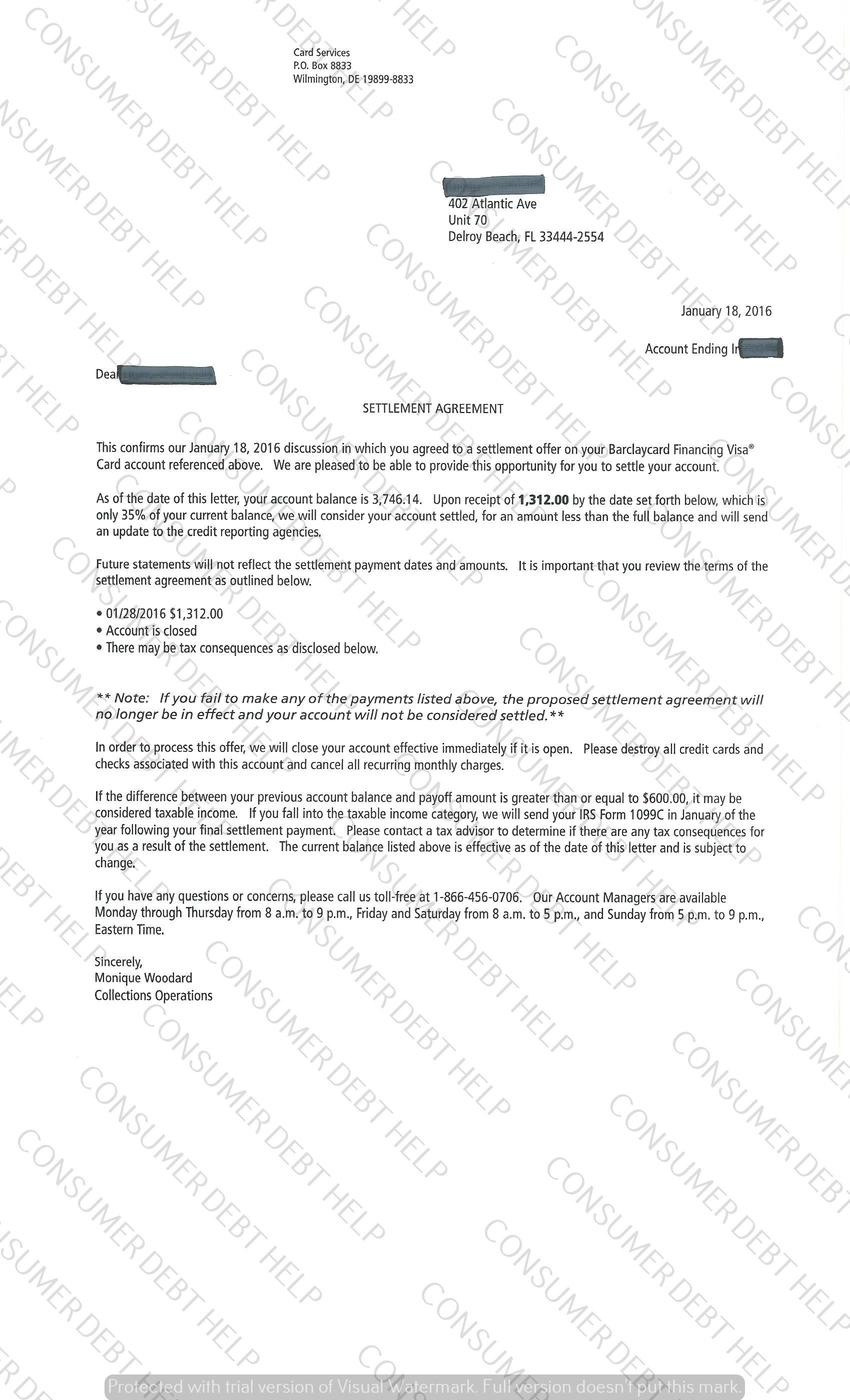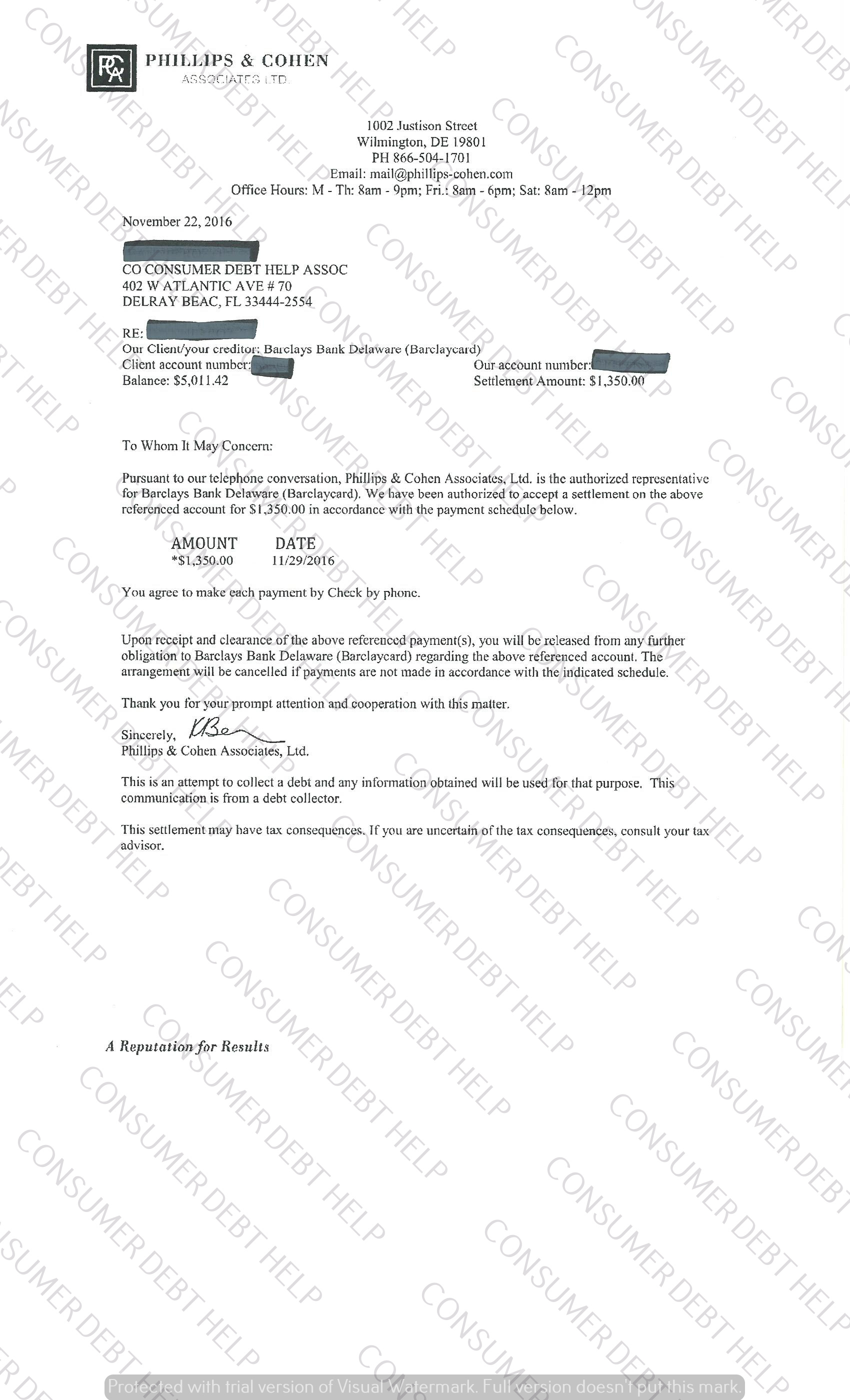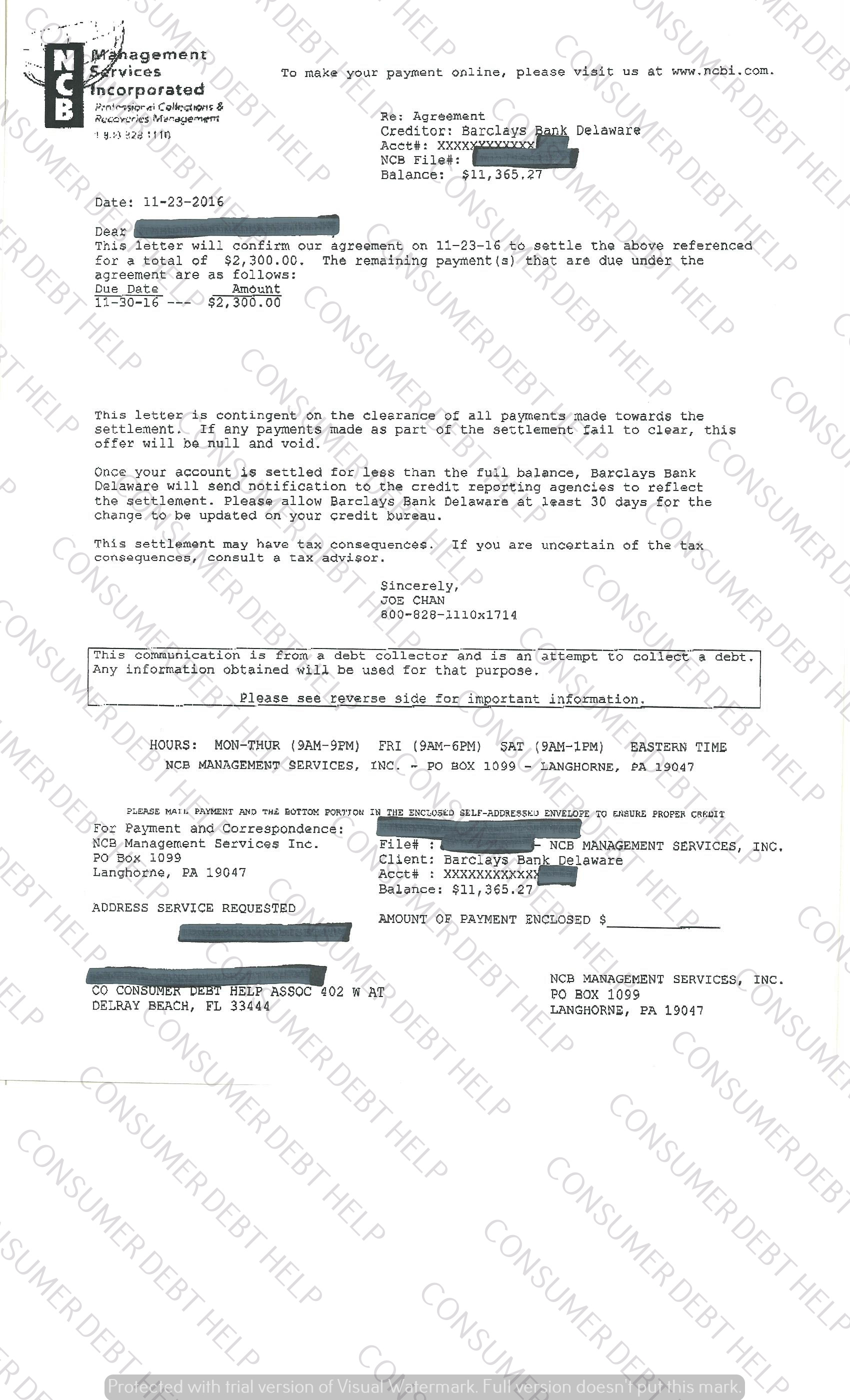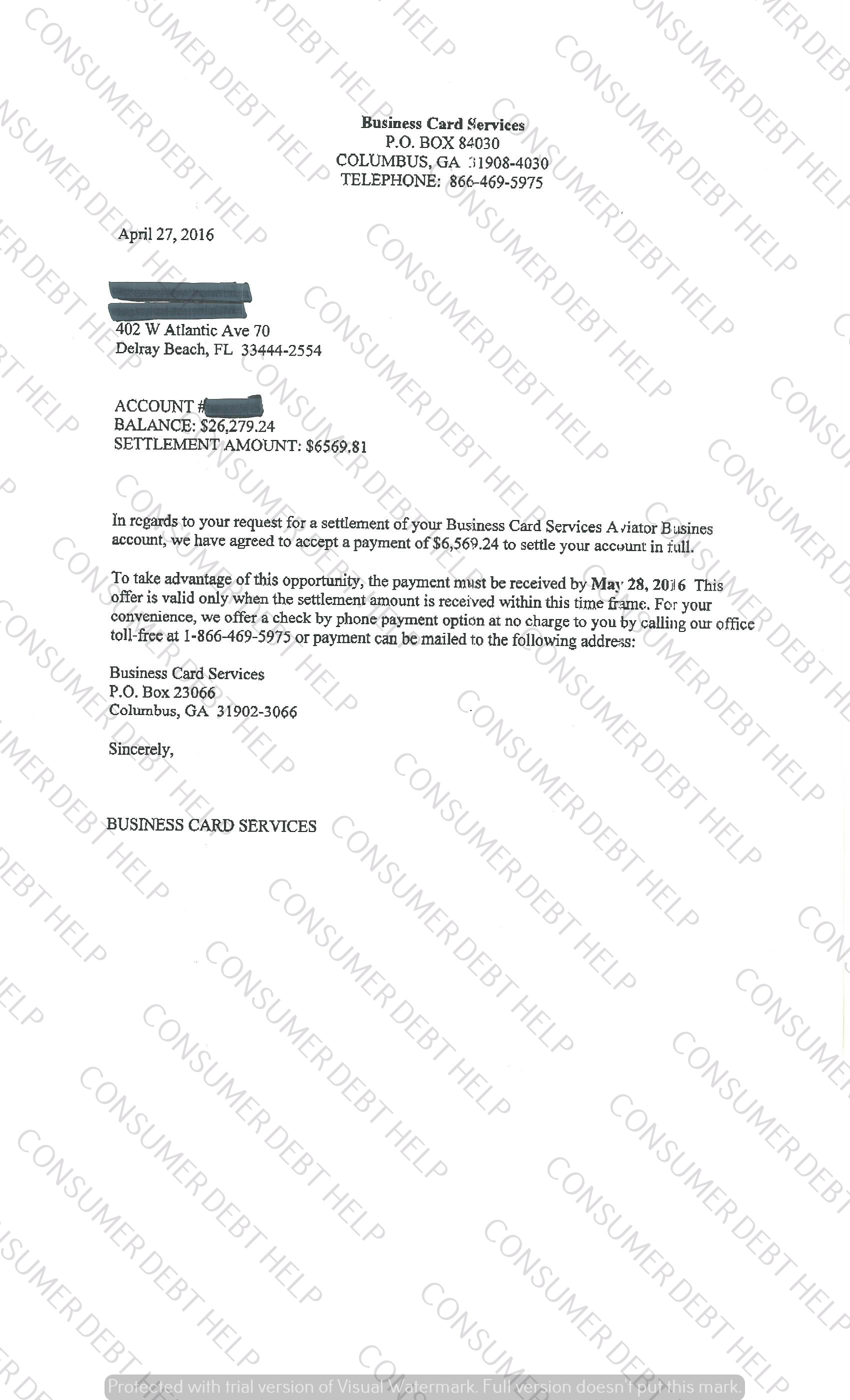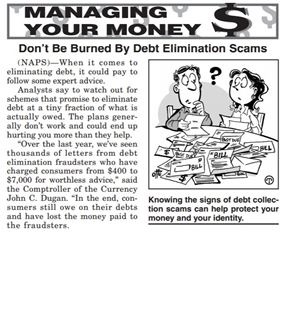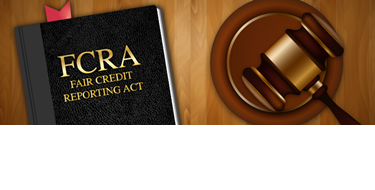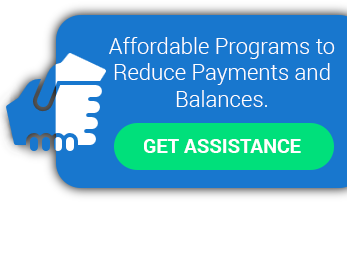Barclays is a British multinational banking and financial services company headquartered in London. It is a universal bank with operations in retail, wholesale and investment banking, as well as wealth management, mortgage lending and credit cards.
OCC WARNING ON DEBT ELIMINATION SCAMS
OCC WARNING ON DEBT ELIMINATION SCAMS
OCC Debt Elimination Notice
https://www.occ.gov/news-issuances/psa/dont-be-burned-by-debt-elimination-scams-feature.pdf
The Office of the Comptroller of the Currency (“OCC”) continues to see an increasing volume and variety of fictitious debt elimination schemes being perpetrated against financial institutions. These fictitious schemes are not to be confused with debt consolidation or debt workout programs presented by legitimate entities.
The object of legitimate programs is to assist the borrower to repay the debt in a responsible manner. The fictitious schemes claim to be able to “eliminate” or to “cancel” various types of debt from banks and non-banks without a material further amount of payment by the obligor. The fictitious schemes take various forms, including those that:
- claim to pay out the debt in some way, but don’t;
- transfer the debt to some wealthy benevolent entity, that does not exist or has no financial capacity; or,
- falsely claim to be able to have the debt declared invalid for the reason that the financial company is not permitted to lend money or the documentation used by the lender is not valid.
The fictitious, fraudulent schemes are being marketed to everybody, not just the wealthy or sophisticated, including borrowers who are current and those approaching foreclosure. The underlying fraudulent claim in all these fictitious schemes is:
- a debt can be eliminated or canceled simply by paying someone a small fee relative to the amount of debt to be eliminated.
These schemes are promoted: via the Internet; in seminars throughout the United States; and, directly by persons known to the victim by way of group affiliation, particularly religious and fraternal groups. These fraudulent schemes claim to “eliminate” or to “cancel” various types of debt, including mortgages, credit card balances, student loans, auto loans, and small business loans. All of them are simply designed to take an individual’s money, and are just the modern version of the old “up-front-fee” scheme. The schemes charge an up-front fee, or membership fee, that currently ranges from $400 to $7,500.
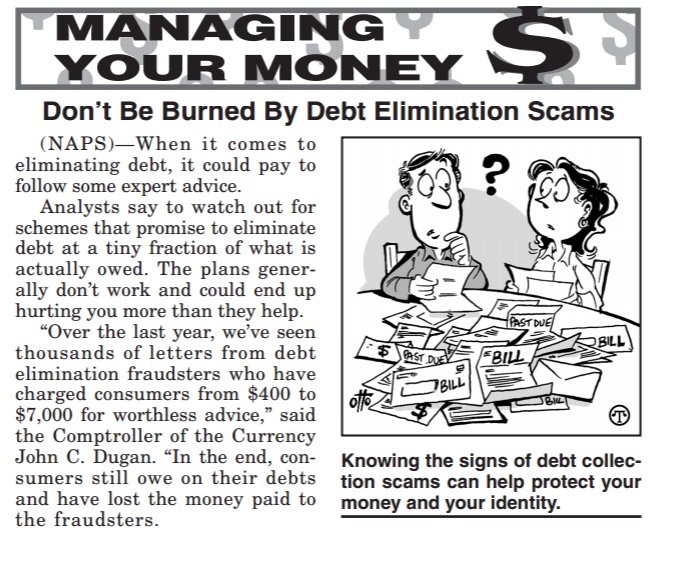
As a result of using a fraudulent scheme, individuals will lose money, could lose property, will damage their credit rating, and possibly incur additional debt. In addition, a creditor may take legal action against an individual to resolve a fraudulent attempt to eliminate debt. It is also possible for the victim to have identity theft occur by participating in a fraudulent scheme. The perpetrators of these schemes are known to steal identities and create substantial new debts in the victim’s name before they are even aware that it has occurred. It is extremely difficult and time-consuming to resolve the issues pertaining to identity theft.
These fraudulent debt elimination and cancellation schemes have no substance in law or finance. In statements and sometimes in the guise of education, the perpetrators of the schemes provide inaccurate or distorted information about applicable laws and real financial operations. The following are examples of inaccurate information the OCC has seen from these schemes:
- Secret information or laws, known only to a select few, can be used to eliminate debt;
- Banks and other creditors do not have the authority to lend money, to advance credit, or to charge interest;
- An individual’s debt is a asset of the creditor that the creditor owes to the individual;
- A debt owed to a bank is the same as a deposit in a bank;
- Creditors will not pursue debt collection after an individual participates in one of these schemes;
- The United States Department of Treasury or some other Federal agency establishes a trust account when an individual is born;
- Arbitration need not meet the terms of the credit agreement;
- Individuals can create their own arbitration companies that can create and certify arbitration awards that eliminate, cancel or reduce debt;
- An individual does not have to pay the debt because the contract or note is illegal and may even deserve a compensatory award; and,
- Results are guaranteed.
There are unlimited variations to these schemes. The basic idea of these schemes, however, is to fool individuals into paying money to have a debt eliminated or cancelled, or to obtain false documents and the instructions on how to submit the false documents to creditors. The following are some variations of the false documents used:
- A fake arbitration award from an arbitrator not authorized under the debt agreement;
- A worthless debt instrument issued by some company, group, trust, benevolent society, or wealthy individual, quite often of foreign origin, as a substitute for the creditor’s note;
- A record of a fictitious account or “trust account” supposedly held in an individual’s name at the United States Department of the Treasury or other Federal agency;
- A fictitious U. S. Government debt instrument issued as a substitute for the creditor’s note, payable through an agency or by an authorized agency person;
- A notice, usually voluminous, to the creditor stating that the contract or note is illegal or the creditor does not have authority to “advance credit” and has violated the law; or,
- The issuance of a false payoff certificate from the original lender, combined with the borrower’s authorization for the perpetrator to obtain a new mortgage, using the proceeds to pay the perpetrator’s fee. This “new debt” is stated to be a new first lien, but it is really just a second mortgage, thereby increasing the victim’s debt and monthly payment requirements.
Any information that you have concerning fraudulent debt elimination or debt cancellation schemes should be brought to the attention of appropriate local or Federal law enforcement personnel.
If the fraudulent scheme is presented via the Internet or e-mail, contact the Internet Crime Complaint Center (IC3). Please go to the IC3 Web site at http://www.ic3.gov and follow the instructions for filing a complaint (IC3 was f/n/a the Internet Fraud Complaint Center- IFCC). Contacts from other sources, such as individual contacts or seminars, should be reported to the local office of the FBI and your local financial fraud law enforcement organization.
If any portion of the offering or subsequent portions of the transaction are processed through the United States Postal System (USPS), the Criminal Investigation Division of the USPS should be contacted. Contact information can be obtained from your local U.S. Post Office.
Credit Reports Are Regulated By The Fair Credit Reporting Act (FCRA).
It is designed to ensure:
• Accuracy of an Individual’s Credit History.
• Fairness for Everyone, no matter their status.
• Consumer Privacy Rights.
Several types of consumer reporting agencies play a major role in credit reports. Some can even be hired to obtain information like check writing history, medical history, and even rental history. Let’s take a look at the rights offered by the FCRA.
The Right of Notification
Individuals must be informed if their credit report has been used to deny them credit. This includes companies that:
• Deny Credit
• Deny Employment
• Deny Insurance
The company that denies any credit request is required to give the applicant the name, address, and phone number of the agency that provided them with the information they used for declination purposes.
The Fair Credit Reporting Act gives everyone the right to know the details of how their credit score is calculated. Therefore, all individuals can request this information and by law, it must be provided. The provider will require government issued identification and in most cases, a social security number. Furthermore, the information must be given without cost if any of the following apply:
• The Information is being used to deny credit.
• The Applicant is the victim of identity theft.
• The credit report contains inaccurate information.
• The applicant is unemployed and expects to apply for a job within the next 60 days.
• The applicant is on public assistance.
All individuals are entitled to a free credit report once every 12 months. This is true even if the above conditions are not met.
Credit Score
Everyone has the right to ask for their score. A credit score is simply a number that represents a calculation of one’s credit worthiness. It’s important to note that while everyone is entitled to request their credit score from consumer reporting agencies, it is not free. However, some lenders will provide the score free of charge.

The Right to Dispute Inaccurate Information
If a person notices something that is either incomplete or incorrect, they have the right to dispute the claim. At that point, the reporting agency will either remove the information or verify it. This normally happens in 30 to 60 days. If the information remains on the report, then it has been confirmed as being accurate. On the other hand, if they cannot verify it, then it will be removed and a new score calculated.
Old Information
Credit reporting agencies will likely not list outdated information. Outdated information is normally defined as anything older than seven years. Bankruptcies are unique and take 10 years to be removed.
Access is Limited
Only those with a valid need to access a report are given access. This includes lenders, employers, or other businesses. The FCRA specifies those with a valid need.
Must Give Consent for Reports Provided to Employers
An individual must give written consent before employers are allowed to request their report. Consumer reporting agencies are not allowed to give out any information to employers without written consent. Trucking companies are an exception to this rule as they are generally allowed access to all records for safety reasons.
Pre-screened Offers
Individuals are given the right to have their name removed from any “prescreened” offers. All insurance companies and lenders must include a toll-free number that allows a user to call and remove their name.
The Right to Seek Damages
Finally, individuals have the right to seek damages from violations of the Fair Credit Reporting Act. Any agency who violates these terms are subject to federal Rendered here under fair use for education and commentary with thanks to its author.
Patrick Mansfield | U.S.Gov Connect
Error: Contact form not found.
[polldaddy poll=9719627]
Selecting a Debt Settlement Partner
Consumer Debt Help Association discusses selecting a Debt Settlement Partner.
A debt settlement company will be 1 year or longer term business partner. Monthly updates are routine for a solid partner. Use these other areas to help you assess your possibilities. Before you begin make this your “First Action Item”
Contact the BBB of its corporate headquarters city to see if they are a member. Is the debt settlement company a member of the Better Business Bureau? How highly are they rated. A+ is the highest and rare among this industry? Do they have complaints in the last year , 2 years, life time ? How long have they been in business. These simple steps assist your verifying the reputation of a qualified debt settlement company. After you find an A+ rated company explore the areas below.
-
How much do they charge ? How much money will this process cost you? When considering a debt settlement company make sure that their program is affordable for you and your monthly budget. Don’t fool yourself if you can’t afford the program and sign up for it anyway, this is just escalating your debt problems further. If you are able to afford the monthly payments for the debt settlement program to work for you, this is the best answer out there. Debt settlement is the best way to handle credit card debt, and the least expensive way out of debt, other than bankruptcy.
-
Is there a Guarantee?Be very careful here as reputable companies that have few or no complaints from consumers build a sterling silver reputation by avoiding guarantees that there is no way they can promise to fullfill by law. So if you hear the word ” guarantee” from a company representative ask them a simple question. Will you put that is writing to me today ? And if they do, what is the guarantee?On the other hand If a debt settlement company is unable to settle your accounts with your creditors, you should not have to pay a fee for that debt. Also be aware to stay away from a company that promises you that this process will not affect your credit rating, and or that they can fix your debt problems quickly. When you sign up for debt relief with a debt settlement program, yes your credit score will go down before it goes back up. This is the price you pay when your debt gets out of whack, but since you have been given major debt relief by using a debt settlement plan, at least you don’t have to file for bankruptcy and that is the good news. It is important to understand that if you do want to have a stable credit rating, you have got to pay your bills on time, because if you don’t, your credit score will drop significantly.
-
Do they have a dedicated settlements department?Does the debt settlement company that you are considering, have IAPDA certified debt negotiators? IAPDA certifies debt negotiators who have a solid understanding of the laws governing the Debt Settlement industry and who will fully understand your current financial situation.
-
Do they offer bankruptcy assistance?Check on whether or not they offer bankruptcy assistance. Does the debt settlement company that you are considering offer any type of bankruptcy assistance. If so this means they are primarly a law firm or a subsidiary of one and their primary activity is law and truly not specialized in debt settlement. Select a seasoned specialist in debt settlement and avoid higher fees and costs.
- Will you have a excllent personal Client Representative? If not, its not in your best interest.

Demand Excellence
While this list is offerred for your education and comments, we think the best way of measuring a client is how you are treated from enrollement to completion. So if that first call sends up any warning signals trust your inner self.




